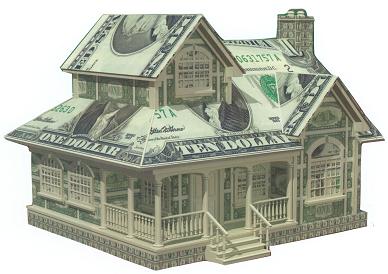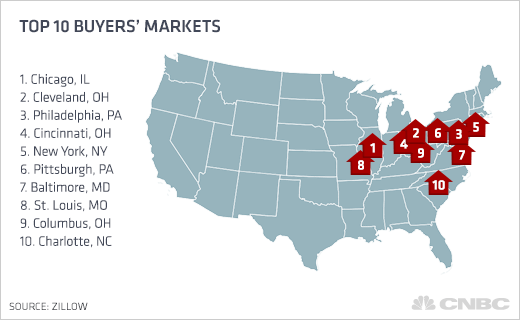
BLOG
Cleaning House: Secrets of a Truly Deep Clean
Spring Cleaning Tips to help keep your home in tip-top shape! These little tips also help when you are selling a home! Buyers want to see a clean home that they can imagine living in! Call me today for your free home evaluation! Laura Key 310.866.8422
Deep clean your house and you’ll brighten rooms and help maintain your home’s value.
De-bug the light fixtures
See that bug burial ground within your overhead fixtures? Turn off the lights and carefully remove fixture covers, dump out flies and wash with hot soapy water. While you’re up there, dust bulbs. Dry everything thoroughly before replacing the cover.
Vacuum heat vents and registers
Dirt and dust build up in heat vents and along register blades. Vents also are great receptacles for coins and missing buttons. Unscrew vent covers from walls or pluck them from floors, remove foreign objects, and vacuum inside the vent. Clean grates with a damp cloth and screw back tightly.
Polish hardware
To deep clean brass door hinges, handles, and cabinet knobs, thoroughly wipe with a damp microfiber cloth, then polish with Wright’s or Weiman brass cleaner ($4). Dish soap shines up glass or stainless steel knobs. Use a Q-tip to detail the ornamental filigree on knobs and handles.
Replace grungy switch plates
Any amateur can wipe a few fingerprints off cover plates that hide light switches, electric outlets, phone jacks, and cable outlets. But only deep cleaners happily remove plates to vacuum and swipe the gunk behind. (OK, we’re a little OCD when it comes to dirt!) Make sure cover plates are straight when you replace them. And pitch plates that are beyond the help of even deep cleaning. New ones cost less than $2 each.
Neaten weather stripping
Peeling, drooping weather stripping on doors and windows makes rooms look old. If the strip still has some life, nail or glue it back. If it’s hopeless, cut out and replace sections, or just pull the whole thing off and start new. A 10-ft. roll of foam weather stripping costs $8; 16-ft. vinyl costs about $15.
Replace stove drip pans
Some drip pans are beyond the scrub brush. Replacing them costs about $3 each and instantly freshens your stove.
Source: Houselogic.com By Jane Hoback Published Jan 14, 2011
4 Reasons Your Listing Might Not Be Selling
Real Estate could be one of your major investments! Make sure you get the most value on return. Interested in seeing how much your home is worth? Call me for a FREE Comparative Market Analysis. Laura Key 310.866-8422
Do you have a home lingering on the market? MSN Real Estate recently polled real estate professionals to find some of the most common reasons why some properties won’t sell, besides trying to overcome a poor location.
Here are four common reasons listings don’t sell in a timely manner, according to the MSN survey:
- Unreasonable price: “It’s always price for condition or price for location,” says Kathy Opperman, a broker-owner with Century 21 Alliance in Philadelphia. “That’s one of the main reasons [homes] sit.” Some sellers are just unrealistic about what their house can truly fetch, or they may be underwater and just unable to lower their price tag. “In my market, the only reason a property would stay on the market for longer than three months would be that the price is too high,” Ron Redfern, a real estate professional from Greeley, Colo., told MSN Real Estate. “Price will overcome any objection.”
- Bad decor: Loud patterns, bold colors, and dated decor styles can distract home buyers. For example, agents say that mirrored walls, cheap wood paneling, and 1970s kitchens can be turn-offs. To try to appeal to the widest buying pool, agents advise clients to stay neutral with their design, give buyers a “minimalist canvas” for them to project their own tastes on.
- Awkward floor plan or missing necessities: Strange or dated floorplans may also make a home linger, such as older homes where you have to walk through a bedroom to get to a second bedroom, MSN Real Estate notes. One home in Catskill, N.Y., has lingered on the market for more than four years because it’s missing a driveway.
- Awful photos: If your listing has yet to sell, you may want to revisit the photos you're using to present it on the MLS. For example, one Chicago listing showed dirty clothes and clutter in the photo, which may prompt buyers to question the hygiene of the rest of the home, as well as assume it has a lack of storage. Be choosy about the photos you upload to the MLS, and remember that less can be more, Opperman says. Have photos showcase the best rooms and features of the home. "If a buyer isn't excited about a home after seeing it online, they won't want to see it in person," Opperman says.
Source: “Listing Losers: 8 Reasons Your Home Isn’t Selling and What to do About It,” MSN Real Estate (March 13, 2013)
Fast California Real Estate Stats
The market has changed! What does this mean to you as a buyer or a seller? Ask me! Laura.A.Key@gmail.com or 310.866.8422
- Calif. median home price: January 2013: $337,040 (Source: C.A.R.)
- Calif. highest median home price by region/county January 2013: Marin, $799,110 (Source: C.A.R.)
- Calif. lowest median home price by region/county January 2013: Madera, $98,330 (Source: C.A.R.)
- Calif. Pending Home Sales Index: December 2012: 82.3 , down 20.5 percent from November's 103.5.
- Calif. Traditional Housing Affordability Index: Fourth quarter 2012: 48 percent (Source: C.A.R.)
- Mortgage rates: Week ending 3/7/2013 30-yr. fixed: 3.52% fees/points: 0.7% 15-yr. fixed: 2.76% fees/points: 0.7% 1-yr. adjustable: 2.63% Fees/points: 0.3% (Source: Freddie Mac)
After Central Air, Buyers Want Walk-In Closets
I have to agree with this article. What is more important to you for your new home? Laura.A.Key@gmail.com
Recent home buyers who want a walk-in closet but didn’t get one in their home say they’re willing to spend $1,350 for one. That’s just one of the important findings in the 2013 Profile of Buyers’ Home Feature Preferences, released today by the National Association of REALTORS®.
Buyers who wanted new kitchen appliances but didn’t get them say they’re willing to spend $1,840 for them. Those who wanted air conditioning are willing to spend $2,520.
The report looks at 33 home feature preferences based on what a representative sample of U.S. households that bought between 2010 and 2012 say they value. Just over 2,000 households participated.
Among the findings: Households in the South tend to want the biggest and newest homes, and they like wooded lots. Those in the Northeast are most likely to like hardwood floors. First-time buyers and single women are big buyers of older homes. Households with children and move-up buyers like larger homes.
The report also contains these tidbits on buyer preferences:
· Among buyers 55 and older, 42 percent want a single-level home, compared to just 11 percent of buyers under age 35. Single women also tend to place importance on single-level homes.
· Single men want finished basements.
· Single men and married couples place importance on new kitchen appliances.
· Among all 33 home features in the survey, central air conditioning is the most important to the most buyers; 65 percent consider this very important.
· The next most important feature is a walk-in closet in the master bedroom; 39 percent considered this very important.
· Also important — buying a home that’s cable-, satellite TV-, or Internet-ready.
· Thirty-two percent of buyers say they’re willing to pay a median of $5,420 more for a residence that also has waterfront property, and 40 percent say they’re willing to pay a median of $5,020 more for a home that’s less than five years old.
— Robert Freedman, REALTOR® Magazine
Ready to find your dream home! Search for free! No signup, no hassle, just a good solid resource. Let me earn your business! www.KeyCaliforniaHomes.com
More Wrongful Foreclosures Against Military Members?
We must protect those who protect our country! There is no excuse for this!
More than 700 wrongful foreclosures involving active-duty service members — a violation of federal law — by some of the nation’s largest banks were uncovered in a report this week. The findings are higher than original estimates, The New York Times reports.
The Service Members Civil Relief Act forbids foreclosures on active-duty military personnel without court orders. Banks uncovered the wrongful foreclosures when analyzing mortgages as part of a settlement with federal regulators.
In 2011, reports began to surface that active military personnel members were losing their homes while deployed, which sparked Congressional hearings to further investigate. Several banks discovered violations and settled claims of wrongdoing. For example, JPMorgan in 2011 settled claims that it wrongfully foreclosed on 18 military personnel and overcharged 6,000 military members. Bank of America and Morgan Stanley also settled claims that between 2006 and 2009 they had foreclosed on 178 military members.
But this latest report shows that violations were much more extensive than originally believed once the large lenders further investigated the loans on their books. Some of the largest servicers discovered about 200 military members whose homes were wrongfully foreclosed upon in 2009 and 2010.
The banks have been taking extra steps to ensure military personnel face greater protection in the future. For example, JPMorgan says it has started a “very generous program for military, including awarding homes, forgiving principal, and hiring more than 5,000 veterans,” says Kristin Lemkau, a spokeswoman for the bank. “We have remediated these errors and plan to appropriately compensate anyone whom we made a mistake with.”
Source: “Banks Find More Wrongful Foreclosures Among Military Members,” The New York Times (March 3, 2013)
Questions about foreclosure against you? Contact me today to discuss your options! Laura.A.Key@gmail.com
HUD Launches First Fair Housing App
Everyone has the right to safe and fair housing! Buying or Renting it is a must in the Real Estate Industry! If you feel you have been unfairly treated make sure you take the proper action!
The U.S. Dept. of Housing and Urban Development (HUD) recently launched the first housing discrimination mobile application (app) for iPhone and iPad. Developed by HUD’s Office of Fair Housing and Equal Opportunity (FHEO) and Hewlett Packard (HP), the app uses the latest technology to provide consumers with a quick and easy way to learn about their housing rights and to file housing discrimination complaints, and inform the housing industry about its responsibilities under the Fair Housing Act.
In addition to facilitating real-time delivery of housing discrimination complaints to HUD, the app can be used by individuals researching their housing rights after a natural disaster, when power outages make the iPhone/iPad one of the few ways to access the Internet. The app also provides information about the fair housing complaint process, and allows the public to access HUD’s toll-free discrimination hotline and link to HUD’s fair housing website: www.hud.gov/fairhousing.
Follow me on FB for important and fun facts about Real Estate! www.Facebook.com/RealtyGoddess
If a Home Gets Hit by a Meteor, Who Pays?
After a meteor struck western Siberia and more meteors threatened the entire globe on Friday, CNNMoney asked the question: Who pays for damage to a home if hit by a space object?
Rest easy, “your insurance covers falling objects," says Robert Hartwig, president of the Insurance Information Institute. In the rare events when meteors have crashed through home owners’ roofs over the years, insurers have paid the damage for those insured, Hartwig says.
“Blue ice” — the frozen sewage that sometimes falls from airplanes — is more common and is also covered if it falls from the sky onto your home, Hartwig told CNNMoney.
A remnant of a meteor struck in the Urals region of western Siberia Friday injuring more than 700 people and damaging nearly 300 buildings. It was referred to as a “once-in-a-century” event.
"The earth is pelted with 40 tons of space debris a year," says Laurie Leshin, a former NASA scientist. "Most of that is in teeny dust particles" and rarely does it injure people or damage property.
Source: “Who Pays for Damage From a Meteor?” CNNMoney (Feb. 15, 2013)
Thinking of selling your home? Call Laura Key today for more info on what the value of your home is worth in this market! The market has changed? How does it effect you? 310.866.8422 or visit www.KeyCaliforniaHomes.com
Historic House Infested With 20,000 Bats
(Tifton, Georgia) Could you imagine living in a home which has become infested with around 20,000 bats? One historic home in Tifton, Georgia has exactly that problem.
Between 10,000 and 20,000 Mexican free-tailed bats have taken up illegal residence inside a home in the Tifton historical district. According to neighbors the bats have been living in the house for some time. Health officials have declared the home unfit for living or any other use until the bats have been cleared out of the dwelling. The health officials also report that the interior and exterior walls of the house are filled with guano, some of it is fresh and the rest has turned to dust, and the clean-up will require the use of special protective equipment for the workers of that particular detail.
There were officials from Tru Tech, officers from Tifton county Environmental Code Enforcement Office, other city officials, neighbors and one Realtor congregated outside the historic home at 316 W. Sixth Street as they decided on what could be done about the infestation.
One way valves, which are special openings that allow the bats to leave the house but not be able to re-enter, will be used to clear the home of the bats.
The Tifton Gazette reports that local realtor Julie Smith, said that the house is in foreclosure and that it is listed with Norris Bishop Realty out of Moultrie. She said that agency has a buyer interested in purchasing the house. Smith also claims “The goal is for everyone to work together so that a family can live here safely. We hope it can again become a house in the historic district that is a viable property on the tax digest.”
Well, whatever they plan on doing let us not forget that there are going to be 20,000 homeless bats in the Tifton Georgia area seeking residence (FYI: The bats have stellar credit, pass the background check, have a 6% cash down payment and are currently seeking a Realtor).
Don't let this story scare you! It's time to own your own home! Contact Laura Key today to see just how to start your journey! www.KeyCaliforniaHomes.com
For-Sale Home Inventories Remain Tight
Inventory levels in 2012 reached an 11-year low and fell yet again last month, further limiting the number of homes for sale nationwide. Inventories of for-sale homes were down by 16.5 percent in January year-over-year, and fell 5.6 percent from December, according to the latest data compiled from Realtor.com. Inventories typically fall in December and January in preparation of the spring buying season.
“But the shortage of homes for sale in a growing number of U.S. markets is maddening for would-be buyers who frequently complain that there aren’t enough good choices,” The Wall Street Journal reports. “Bidding wars are becoming more common.”
At a time when buyer demand is strong, inventories remain constrained as banks slow their pace of foreclosures and home owners delay selling until they regain more equity in their homes.
Metro areas posting some of the largest monthly declines in inventory levels are San Francisco (where inventory levels are down by 21 percent in January compared to December and down 47 percent year-over-year) as well as Seattle (where levels dropped 9 percent from December). The two have also seen some of the largest price increases in the nation. Median asking prices have risen by 16.4 percent and 23.7 percent in those places, respectively.
Source: “Housing Inventory, Already Low, Dropped Further in January,” The Wall Street Journal (Feb. 14, 2013)
If you are in the market for a new home, it would be wise to use an experienced Buyer's Agent to help guide you through the process. Contact Laura Key today for your free consultation on the up's and downs of being a buyer in this changing market! 310.866.8422 or visit www.KeyCaliforniaHomes.com
'Nightmare On Elm Street' Home On Sale For Over $2 Million
Looking for a horrifying new place? The home from the legendary "Nightmare on Elm Street" movie can be all yours for just a little over $2 million -- and it’s not nearly as creepy as we imagined.
According to the listing by Redfin, the Los Angeles home has four bathrooms, three bedrooms, "designer closets,” and en suite baths. It’s completely modern with hardwood floors throughout and stainless steel appliances in the kitchen.
The current owner told AOL Real Estate that the home really was a nightmare when she purchased it in 2006. "It was the only house on the street that looked beaten up. The pool looked like it hadn't been touched in 10 years -- it was black," Angie Hill told the publication.
Hill has transformed the property into a dream... but the home still boasts the famous red door from the 1984 thriller, and we are half expecting Freddy Krueger to open it.
Maybe this home is a little too frightening for you? Call Laura Key to find your "DREAM HOME" today! www.KeyCaliforniaHomes.com
Is Your Home in a Buyer's or Seller's Market
As the overall housing recovery gains steam, local market divergences are growing wider. That is because one overriding factor —faulty and fraudulent mortgage lending — brought the market down; it will take varied local and national market drivers — jobs, income growth, consumer confidence, increased lending — to bring it back.
And that is why certain markets remain buyers' markets and certain ones have fast become sellers' markets.
Online real estate marketplace Zillow, defines a sellers' market as not necessarily one where prices are rising, but one in which homes sell faster, price cuts occur less frequently and final sale prices are close to or greater than list price.
Zillow ranked the top 30 markets and found that the formerly hard hit markets in California, Arizona and Nevada now rank as the top sellers' markets, which may seem counterintuitive, until you consider who the buyers there are now.
"Much of that strength is driven by investor interest, as many distressed and non-distressed homes are purchased and transformed into rentals," says Stan Humphries, Zillow's chief economist, in the report. "This investor activity is contributing to very low inventory levels, which increases demand and helps drive up prices, particularly for less expensive homes in these markets."
The best buyers' markets are equally surprising, with Chicago, Cleveland and Philadelphia topping the list.
These markets are still plagued by distress, despite the fact that their foreclosure numbers were lower during the worst of the housing crash. Investors are a far smaller share of buyers, as these markets don't offer the sun and leisure opportunities that the sand states do. Home prices are still suffering in these markets under still-tough local employment conditions. All that makes them less desirable for buyers. Stricter mortgage lending standards are also likely playing an outsized role, since most buyers in these markets would be owner-occupants.
The housing crash was the first fully national housing downturn in U.S. history. Usually housing downturns are local, spurred by some local phenomenon. Now that the overall economy is on the upswing, housing return to its roots and rises and falls on local factors again.
Source: CNBC —By CNBC's Diana Olick
Need to know how much your home is worth? Contact Laura Key today for a free Comparative Market Analysis! www.KeyCaliforniaHomes.com
Home Prices Surge Despite Distress
For nine straight months, national home prices have been in the positive, and the gains are only getting larger. The latest reading for November shows a 7.4 percent jump from a year ago, according to CoreLogic. That includes sale prices of distressed properties, bank-owned homes and short sales. This is the largest year-over-year jump since 2006 when we were at the height of the housing boom.
"As we close out 2012 the pending index suggests prices will remain strong," wrote Mark Fleming, chief economist for CoreLogic in a release. "Given that the recently released Qualified Mortgage rules issued by the Consumer Financial Protection Bureau are not expected to significantly restrict credit availability relative to today, the gains made in 2012 will likely be sustained into 2013."
Some had predicted price gains of between three and five percent in 2013, but these numbers seem to indicate the market could outpace expectations.
While competition among investors for distressed properties drove home price gains in much of 2012, the non-distressed market appears to be catching up. Excluding distressed sales, home prices still saw a healthy 6.7 percent annual gain in November, and analysts at CoreLogic are predicting an even larger 8.4 percent jump in December.
"For the first time in almost six years, most U.S. markets experienced sustained increases in home prices in 2012," said Anand Nallathambi, president and CEO of CoreLogic. "We still have a long way to go to return to 2005-2006 levels, but all signals currently point to a progressive stabilization of the housing market and the positive trend in home price appreciation to continue into 2013."
Just six states, Delaware, Illinois, Connecticut, New Jersey, Rhode Island and Alabama saw annual price depreciation. New Jersey still has a huge backlog of distressed properties, as does Illinois. Arizona, Nevada and California are seeing big home price gains, as investors there continue to inhale properties to take advantage of the very lucrative rental market. Still, even excluding distressed sales, Nevada saw a 12 percent jump in home prices.
There are, however, still looming headwinds to home prices, as banks ramp up foreclosures especially in states that require these cases to go before a judge. That new inventory could slow price gains in those states. Inventory, or lack thereof, is the primary driver of much of these gains. There were just 2.03 million homes for sale in November, according to the National Association of Realtors, a 23 percent drop from November of 2011 and the lowest supply since September of 2005.
Some are concerned that low inventory and not increased demand is juicing prices faster than is healthy for the housing recovery. If prices start to outpace earnings and employment growth, and then more properties hit the market this Spring, these gains could take a U-turn.
Source: CNBC by By: Diana Olick
Buyers are starting to have a hard time finding the homes they need! Let me help guide you through the market to help you obtain the home you need before prices go to far! Laura Key www.KeyCaliforniaHomes.com
New Housing Fears: Home Prices Are Rising Too Fast
"For Sale" signs may seem like an eyesore to neighbors on any given local street, but the lack of them is a much bigger problem.
Just 1.82 million homes were listed for sale in December, according to the National Association of Realtors. That is a 22 percent drop from a year ago and the lowest supply since May of 2005, when words like "boom" and "bubble" followed the word "housing." At the current sales pace it would take just 4.4 months to sell those homes.
"The greatest concern in the market is the inventory situation," said Lawrence Yun, chief economist for the NAR. "Even if we see an increase in the Spring and Summer, if home sales hold at the [current] level or even a 5 to 6-month supply, price increases are guaranteed. We don't want to see rapid appreciation in prices faster than income."
The reasons for the low supply are varied, and the low numbers are in fact feeding on themselves. If potential buyers can't find something to their liking, they will probably not list their homes for sale.
There are also still 10.7 million borrowers who owe more on their mortgages than their homes are worth, according to the latest report from CoreLogic. An additional 2.3 million have less than five percent equity in their homes, referred to as near-negative equity. Most of these homeowners are stuck in place, unable to sell unless they can afford to pay in to their mortgages. As for new supply, even though builders are increasing starts, they are still not even at half the pace they were at the height of the housing boom.
As a result, home prices are now rising more and faster than most analysts predicted due to this short supply, up 7.4 percent year-over-year in November, according to CoreLogic. They are especially surging in some of the hardest hit markets from the housing crash, where large-scale investors are swarming with cash in hand. In Phoenix, home values jumped nearly 32 percent from a year ago in November and are now at the highest level since October of 2008 according to DataQuick. While still 39 percent off their boom-high in June of 2006, they are now up 41.5 percent from the bottom, and there is not much on the market.
Healthy housing market gains are historically driven by increasing employment and income, not by lack of supply; the latter leads to price bubbles. First-time home buyers, who generally account for 40 percent of the home-buying market or higher are still under-represented at just 30 percent, according to the Realtors. This is due to tighter credit conditions in the mortgage market and now decreasing affordability.
December's disappointing drop in home sales, month-to-month is a clear warning for the housing recovery going forward. Rising home prices are not the sole measure of a healthy market. Supply and demand need to fall closer in line, and a robust economic recovery should be driving both home sales and prices.
Source CNBC —By CNBC's Diana Olick;
Prices are rising rapidly. Wondering if you can buy before they get too high? Call Laura Key today for a free consultation! www.KeyCaliforniaHomes.com
25% of Consumers Have Errors on Credit Report
Consumers need to be extra vigilant about checking for any errors on their credit reports, according to the Federal Trade Commission.
One in four Americans report they’ve found an error on their credit report, according to a study conducted by the FTC, which analyzed 1,001 consumers’ credit reports from the three major agencies, Equifax, Experian, and TransUnion. Researchers helped the consumers spot potential errors on their reports.
Five percent of the consumers found such large errors on their report that they could have gotten stuck paying more for mortgages or other financial products, if they hadn’t taken steps to correct it before applying, according to the study.
Twenty percent of the credit reports studied that were found to have errors in it were ultimately corrected after the consumer took steps to dispute it, which resulted in about 10 percent of consumers receiving a higher credit score, according to the study.
Consumers are entitled to receive a free copy of their credit report each year from the three reporting agencies.
Source: “Study: 1 In 4 Consumers Had Error In Credit Report,” The Associated Press (Feb. 11, 2013)
Keeping a close look at your credit can make or break the decision to purchase a home! Call Laura Key for more info! 310.866.8422 or Laura.A.Key@gmail.com
Beginning Your Home Search
Once you've determined that you're ready to buy, it's time to begin thinking about where you want to look. You'll find there are many questions you must answer about the type of house you want to purchase. For example, are you interested in an older home or a new one? How big of a home do you need? Would you like to move closer to certain major roads or freeways? Your REALTOR® can answer many questions about the homes and communities you're considering, and in the meantime, there are myriad resources available for you to begin your research. Location Is Everything
Do you want to live in a particular city or neighborhood? If you're a parent, you're probably considering school districts and other child-friendly options like the proximity to parks. If you're relocating to an unfamiliar area, you can contact the city or county government for information about the community. It's a good idea to investiage crime statistics per neighborhood when you're narrowing down the areas of your home search.
Or perhaps location is the reason why you're buying in the first place -- to move closer to your work, your spouse's work or your extended family, or to live within a particular school district's zone. As you're probably aware, the location of your home can have a dramatic effect on its price.
Size Matters
You may have experienced growing pains in your current home, which prompted you to pursue buying a new abode. Or you're entering a self-employed profession and need a home office. Consider all your space requirements before you start searching for a new home. There's no reason to waste time looking at two-bedroom condos when you really need a four-bedroom house.
Locating Listings
Once you've narrowed down the specifics of your ideal home, where do you find listings? Your REALTOR® has access to thousands of listings in your area through the Multiple Listings Service (MLS). He or she will help you find available homes that meet your criteria. Or, you can start your home search by calling Laura Key at 310.866.8422
Source: CAR (California Association of Realtors)
www.KeyCaliforniaHomes.com ● Laura.A.Key@gmail.com
The American Dream of Homeownership!
In addition, owning your own home provides a sense of security and well-being that's hard to beat. Home is where we raise our families, have friends over for summer barbeques, paint the baby's room pink or blue, and find refuge from the outside world.
Owning a home offers other advantages as well. For instance, as a homeowner, you have control over your environment. Not only can you change your home to meet your needs, but you also aren't subject to the terms of a lease or a landlord. As a homeowner, you can experience the emotional and financial security that comes from knowing what your housing expenses will be from year to year. Unlike rents, which can increase annually, most mortgages have fixed or capped monthly payments. So, as a homeowner, you can have a much better idea of what proportion of your paycheck goes toward your home. Think of it as the ultimate savings plan.
And it only gets better. Homeownership is the primary component in the creation of wealth for many Americans. Data from Harvard University's Joint Center of Housing Studies illustrate not only that the median net wealth of homeowners is 34 times greater than that of renters, but also that over half of that wealth is generated from home equity. As you pay down your loan amount each month, you accumulate equity, a growing ownership interest in your property. If you need funds, you can borrow against this equity in the form of a home equity loan. Further, interest on a portion of home equity is tax-deductible.
Most homes appreciate in value over time and can be a source of income for you, especially if you've lived in your house for many years. When you retire, you can sell your home if you need the funds or make use of a home equity conversion mortgage.
Finally, don't forget about the significant tax advantages of owning your home. Interest on a home mortgage and property taxes are deductible. For most of us, mortgage interest provides the largest tax deduction. Also, a home is the single most important factor that determines whether you will be able to file a return which takes advantage of the wide range of allowable itemized deductions.
Homebuying Means Getting Back To The Basics
Recently, the CALIFORNIA ASSOCIATION OF REALTORS® surveyed homebuyers to find out what they considered to be important in the purchase of their homes. The largest percentage, 27 percent, considered the mere ownership of a home as the most important reason to buy. Moving to a better neighborhood (17 percent), wanting a larger home (10 percent), and realizing the tax advantages of homeownership (8 percent) were other reasons cited for buying homes. Seven percent focused on investment value as their primary motivation for homeownership.
Over the years, your home likely will be the best investment you'll ever make. But more importantly, it will be the place that offers you and your family shelter, security and stability. That's some return on investment.
Short Sale Process Cut in Half or More, Freddie Mac Says
Short sales are getting much shorter, Freddie Mac says. The mortgage giant launched a Freddie Mac Standard Short Sale program on Nov. 1 that sought to speed up the short sale process and make it easier and more transparent. "We estimate that the time to complete a short sale will decrease by approximately 50 percent to 75 percent," as a result of the changes, writes Tracy Mooney, Freddie Mac’s EVP in a recent blog post.
Among the changes that took effect Nov. 1, 2012:
- Mortgage servicers have 30 days to make a decision on a short sale once they receive an application. If they need to negotiate with a third party, they have 30 additional days. A final decision on the short sale must be made within 60 days.
- Mortgage servicers are required to acknowledge they received the short sale application within three days of submission. Servicers must provide weekly status updates if they end up needing more time to review the application past the initial 30-day period.
- Mortgage servicers have authority now to approve short sales when qualifying financial hardships for home owners who are past due or current on their mortgage payments.
- Mortgage servicers are also now able to approve short sales without seeking a separate review by the mortgage insurance company.
- Following a short sale, home owners may be able to qualify for up to $3,000 in relocation assistance.
Source: “The Shorter Short Sale: Long on Borrower Benefits,” Freddie Mac Executive Perspectives Blog (Jan. 22, 2013)
Competition to Buy Remains High in California
Are you ready to buy your new home? Contact Laura Key for top-notch service! Home Education, Home Buying, Selling a Home, Short Sales, Luxury Homes! She has you covered! www.KeyCaliforniaHomes.com
Laura.A.Key@gmail.com
Avoiding Loan Modification Hoaxes
Please make sure you speak to someone who can really help you!
Homeowners wary of being taken in by bogus “loan modification specialists” should not assume that a law office is the most reliable way to work with their lender. Consumer advocates say a growing number of fraudulent modification services involve lawyers, or people who say they are lawyers.
Making sense of the story
- Increasingly, lawyers are lending “their names, their offices, their credentials” to fraudulent operations that vaunt superior skills in obtaining loan modifications, according to a senior counselor at the Lawyers’ Committee for Civil Rights Under Law in Washington.
- While Federal Trade Commission rules generally prohibit demanding upfront fees for mortgage relief services, there is a narrow exception for lawyers.
- Under the rules, a lawyer may charge clients in advance for assistance if the service is part of their general practice of law, and not outside of that practice.
- Certainly, many lawyers provide legitimate foreclosure-avoidance services, but borrowers should know that when going to a lawyer whose sole business is loan modifications, that is a red flag.
- As more homeowners become aware of these tactics, some operations are changing their practices. Instead of selling loan modification services, they are advertising so-called loan workouts and forensic loan audits. Some are even posing as nonprofit groups.
- The Homeownership Preservation Foundation and the Lawyers’ Committee both belong to a coalition of public and private agencies that maintain a national database of loan-modification complaints. Since March 2010, some 28,000 homeowners have reported potential fraud. Their reported monetary losses total around $66 million.
- (source: New York Times)
Homeowners Benefit from Tax Credit for Green Remodeling Projects
While uncertainty regarding the fiscal cliff may have had consumers concerned about the overall economy and how taxes would be affected, those who have purchased homes for sale in Los Angeles County and made eco friendly renovations could benefit from a tax credit that has been extended. The American Taxpayer Relief Act pushed the $500 tax credit through the new year, so projects done in 2012 and in 2013 are eligible. The tax break itself , the non-business energy property tax credit, gives homeowners $500 off their taxes for making approved energy-efficient improvements. Some renovations include the installation of a new front door or other Energy Star labeled appliances and products.
Breaking down the credit, 10 percent of the cost of building materials, not including labor for insulation, windows and doors, greener roods, heat pumps, furnaces and corn-fueled stoves. In addition to savings when filing taxes, homeowners can expect to see reduced utility bills with these changes.
(Source: Today's MLS Real Estate)













